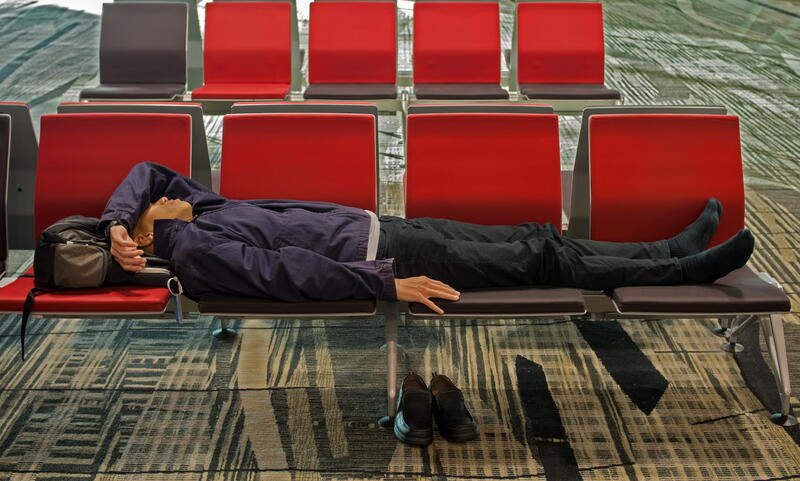I will leave for Europe in about three weeks to board an Atlas Ocean Voyages cruise. The cruise will go from Athens to Venice, with stops in Greece, Albania, Montenegro and Croatia. Naturally, I’m looking forward to it, but the one thing I am not looking forward to is jet lag.
On my last overseas trip to France in April 2023, my jet leg was so severe that I couldn’t stand up during a tour of an olive farm. My energy was non-existent, and anytime I did stand, I felt dizzy. I’m certain I was the only one in this situation, and nearly everyone was older than me. This was such a difficult experience that I promised myself I would do everything I could not to go through this again.
So now, I have the opportunity in the next three weeks. I saw a kit advertised on several social media channels, costing $100 for a single use. While I’m tempted to try it, that’s still a steep price tag. Instead, I’m researching tested ways to deal with this annoying challenge of travel. I’ll let you know if these were successful in a follow-up post.
Here are six strategies to help you arrive at your long-distance destination with minimal problems:

Adjust one to two days before your trip
If you are a night owl (like me), this might be a difficult but necessary step to fight jet lag. Simply try to go to bed several hours earlier than normal. If you need to use sleep aids such as melatonin or CBD supplements, blackout window coverings, eye masks or cooler room settings, do so. This will reset your circadian rhythm patterns and help you adjust to your trip time zone.
Get good rest and avoid stress
Related to the adjustment in your sleep schedule is the quality of rest. I know this isn’t something that’s easily under your control, but putting away your screen devices and stopping watching TV a few hours before bedtime could help. Another way to get a more restful slumber is to minimize exposure to anything personally agitating before sleep, like watching the news or doing work.
Limit alcohol and caffeine
I will try to do this anyway when I travel by air because both are notorious dehydration factors. But I admit that flying on international carriers is tempting because drinks are complimentary. Plus, when I’m struggling to wake up after sleeping inadequately in a plane seat, coffee is the only thing I can think about. But I will try to cut down on both when I head to Athens in a few weeks.
Hydrate and eat nutritiously
Of course, making smart choices with food and drink is generally a good health strategy, whether you are traveling or not. But perhaps more than anything, I’ve found that staying well-hydrated with mostly water or electrolytes can help combat jet lag. also when you can have as much unprocessed food as possible (admittedly, not an easy thing to do on a flight), that also helps with fluctuating energy levels.
Keep your schedule low-key
Since I have never been to Athens or Greece before, I was tempted to book a tour or some activity to see the Parthenon, the Acropolis or something else you can only see in the city. But I would rather get to the hotel as soon as possible and relax, maybe even try to exercise a bit (see this tip below). Of course, I won’t do anything too intense. That intense heat might prevent me from going out, but I can always do some in-room yoga.
Workout and stretch
Of course, you can’t do your normal exercise routine on a flight. But when you get to your destination, even if you’re feeling significantly fatigued, you might benefit from taking a short walk after you’ve checked in to your hotel or residence. While you’re flying, you can do some stretching and walking around, so that you get some circulation in your body and reduce the inevitable stiffness.
